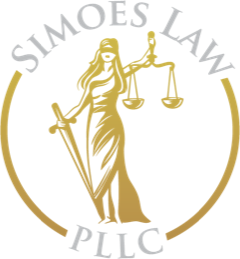Domestic Violence Injunctions
- Home
- Domestic Violence Injunctions
Domestic Violence Injunctions

Over 100,000 crimes of domestic violence are reported in Florida every year, and countless more go unreported. Domestic violence is a very serious issue and can have a lasting impact on the victim. Domestic violence is not limited to physical violence. It can fall into one of five categories: physical, psychological, emotional, sexual, and financial. In some cases, more than one type of domestic violence is present in a relationship.
- Physical abuseis the most obvious type of domestic violence because it frequently results in injuries, scarring, bruising, burns, and cuts. Any type of unwanted physical contact committed toward a victim may be considered to be physical abuse, such as hitting, shoving, kicking, or harming him or her with a weapon or object used as a weapon. Physical abuse can also include refusing an individual a substance that he or she needs to remain healthy and alive, such as medication or even just food or water. It can also include forcing an individual to use drugs against his or her will.
- Emotional abuseis a form of violence that manipulates an individual’s emotional state to allow the abuser to maintain control over his or her actions. Examples of emotional abuse can include telling the victim that he or she is unworthy of love, insulting, belittling, or criticizing the victim to reduce his or her self-esteem, and using empty promises to keep the victim under control.
- Psychological abuseshares some characteristics with emotional abuse, but is distinct in that it refers to control over the victim’s relationship with the outside world, rather than simply manipulating his or her feelings about the abuser. For example, psychological abuse can include prohibiting the victim from contacting family or friends, creating a distorted balance of power that leaves the victim having to ask the abuser for permission for trivial matters, and threatening the victim with severe consequences if he or she were to leave the relationship or otherwise upset the abuser.
- Sexual abuserefers to any unwanted sexual contact between the victim and abuser. It can refer to rape, but it can also refer to a myriad of other sexual offenses. Some examples of these offenses include unwanted touching, harassment, and forcing the victim into sexual activities that he or she is not comfortable doing. Reproductive coercion, which is the act of sabotaging one’s form of birth control to force a partner into becoming a parent against his or her will or forcing a pregnant victim to have an abortion against her will, is also a form of sexual abuse.
- Financial abuserefers to the strict control of a victim’s finances in order to control the victim. Examples of financial abuse can include prohibiting a victim from working or going to school, requiring a victim to give the abuser all of his or her paychecks, obsessively checking the victim’s banking statements and punishing him or her for unapproved purchases, and withholding money from the victim. Financial abuse can be the most difficult type of abuse for a victim, especially a female victim, to recognize because of long-held cultural traditions of men being breadwinners and holding the financial control over a household.
Seeking Restraining Orders under Florida Domestic Violence Laws
Domestic violence in Florida includes any assault, battery, sexual assault, sexual battery, stalking or any other criminal offense which causes a physical injury, when the act is committed by a family member or member of the household. This includes ex-spouses as well as people who have a child in common, even if they have never been married.
A person who has been the victim of domestic violence or who is in imminent danger of domestic violence can go to court for an emergency protective order or temporary restraining order. These court orders can immediately restrain the alleged abuser from having any contact with the victim and be subject to arrest for violating the order. In addition, the judge granting the injunction can make any number of other orders against the alleged abuser, including:
- Ordering the alleged abuser to move out of the home, giving temporary possession to the alleged victim
- Establishing a parenting plan and time-sharing schedule for child custody and visitation, or modifying an existing plan
- Creating or modifying child support orders
- Ordering the alleged abuser to relinquish any firearms
- Ordering the alleged abuser to take a batterer’s intervention course
All of the above can be issued without any hearing or prior notice to the alleged abuser. A hearing must be held, however, within 15 days, to decide whether to continue the order or cancel it. At this hearing, the alleged abuser may appear with an attorney and challenge the injunction.
Restraining Orders in Florida Divorces
Whether you are seeking or challenging a domestic violence restraining order, it is important to be advised and represented by an experienced domestic violence attorney who fully understands how these matters may affect a related divorce, child custody dispute or other family law matter. In South Florida, contact the Law Offices of Alexsandra Simoes for professional legal assistance.
About Us
Alexsandra Simoes is the Founder and Principal Attorney at Simoes Law, P.L.L.C in the county of Palm Beach. Mrs. Simoes represents clients in all areas of family law, including dissolution of marriage, alimony, time-sharing, parenting plans, child support, establishment of paternity, enforcement or modifications, prenuptial and postnuptial agreements, same sex family services, distribution of marital assets and liabilities, and many other issues. Mrs. Simoes also handles immigration law matters focusing her practice in family-based petitions, cancellation of deportation, waivers and VAWA cases.
Simoes Law
Contact us
Get In Touch
We're available to answer your questions 24/7.

